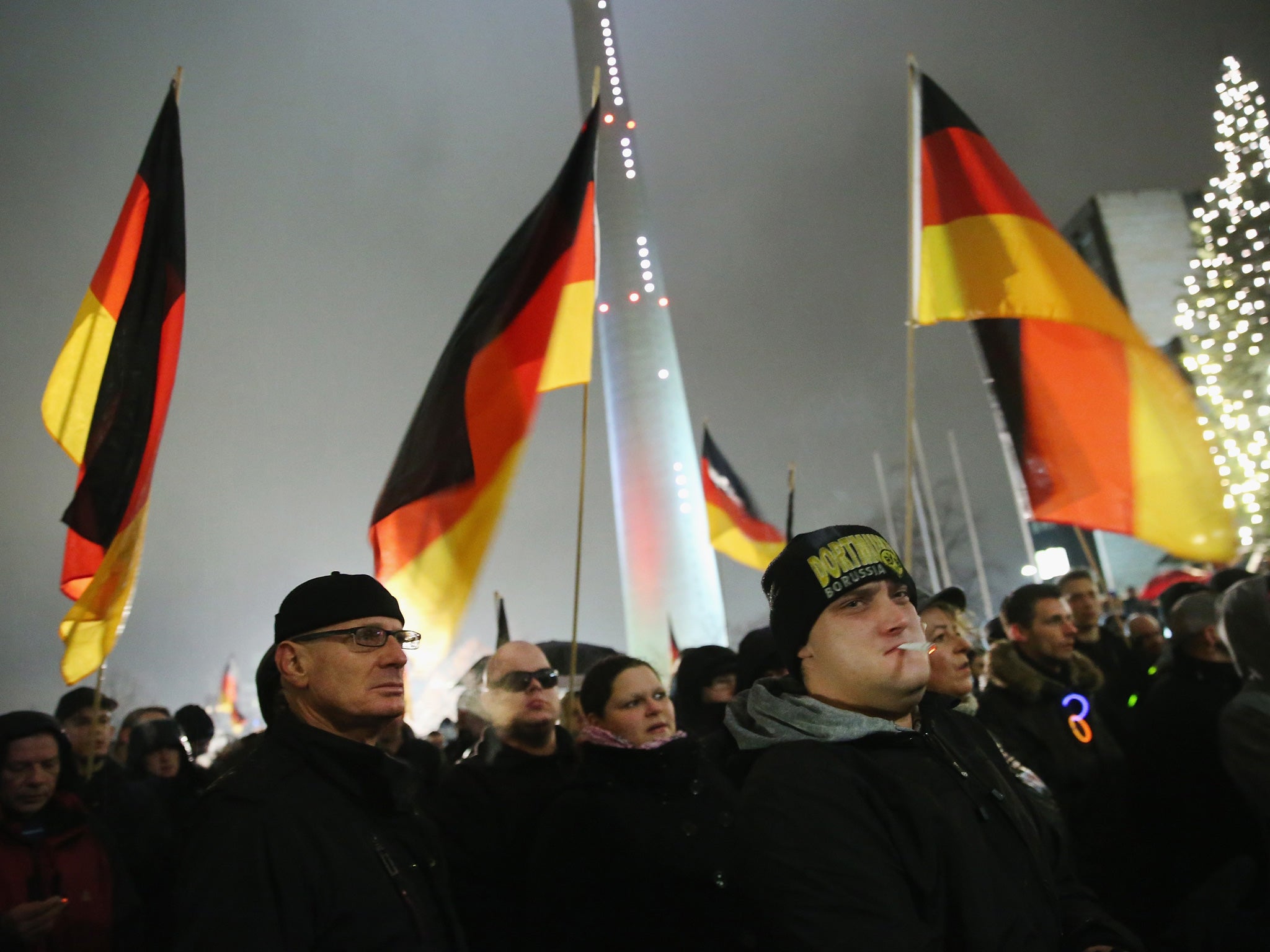Germany sees 'visible rise' in support for far-right extremism in response to perceived 'Islamisation' of the West
Politicians are calling it 'probably the biggest issue of the next decade'

Their leaders have been dismissed as “Nazis in pinstripes”, they have been dismissed by Angela Merkel as having “no place in Germany” – but on Monday night, thousands will march through the city of Dresden in protest against the “Islamisation of the West”.
Speaking to the Sunday newspaper Welt am Sonntag, Germany’s most senior police officer Holger Münch spoke of “a visible rise in xenophobic crime countrywide”.
Both anti-Muslim and anti-Semitic sentiment are reported as being on the increase in Germany, as right-wing activists join football hooligans in violent, racially- and religiously-motivated crime.
At the same time, Germany is experiencing record levels of immigration, and has been named as Europe’s biggest recipient of asylum-seekers.
Monday’s march in Dresden has been organised at least in part by a group calling itself PEGIDA – an acronym for "Patriotic Europeans against the Islamisation of the West".
The march poses a dilemma for Ms Merkel, with opinion polls actually showing support for the marchers' calls for a tougher German immigration policy. On Friday, the Chancellor outlined a zero-tolerance policy for hatred of Muslims or any other minority.
But her Social Democrat (SPD) coalition allies, the opposition Greens and the fast-growing Eurosceptic party Alternative for Germany (AfD) have all jumped on the issue of immigration as an opportunity to score points against the country’s extremely popular leader.
The SPD challenged her to respond to what senior SPD lawmaker Thomas Oppermann called “probably the biggest issue of the next decade”, and called the march organisers “Nazis in pinstripes”.
Greens leader Cem Oezdemir, who will join a counter-protest in Dresden, urged her “to recognise clearly that Germany is a country for immigrants and benefits from them”.
But Ms Merkel’s own Christian Democrats' (CDU) have given a mixed response to PEGIDA – with some CDU officials urged understanding for the motivation of the marchers.
The marches have already spawned copycat protests in cities to the west like Duesseldorf, which have larger immigrant populations than Dresden, home to very few of Germany's 4 million Muslims.
Hajo Funke, a Berlin professor, said many of the estimated 10,000 people who marched last week voiced vague "discontent with society and their own lives", while the organisers played on fears of armed insurgents Isis and al-Qaeda.
The march will also trigger fresh debate between the main parties on how to deal with the AfD, which the CDU has dismissed as a fringe group quietly recruiting right-wing extremists.
Interior Minister Thomas de Maiziere said there was no risk Germany would be “Islamised”, adding that he believed there was an “overlap” between PEGIDA and the AfD.
The AfD has apparently not rejected such an association, and one of its leaders, Alexander Gauland, said he plans to be in Dresden on Monday.
“We are the natural allies of this movement,” Gauland said.
Additional reporting by Reuters
Join our commenting forum
Join thought-provoking conversations, follow other Independent readers and see their replies
Comments